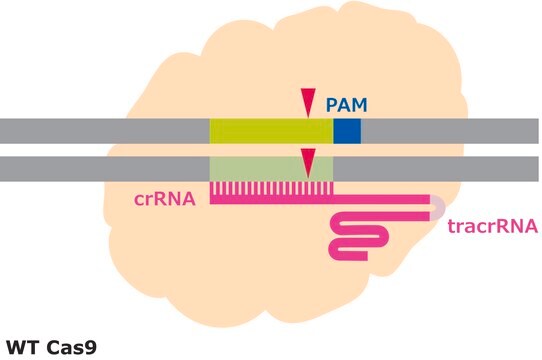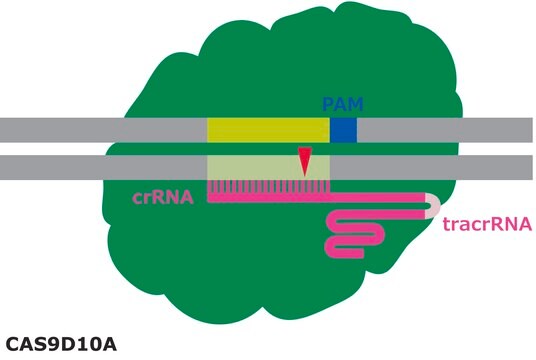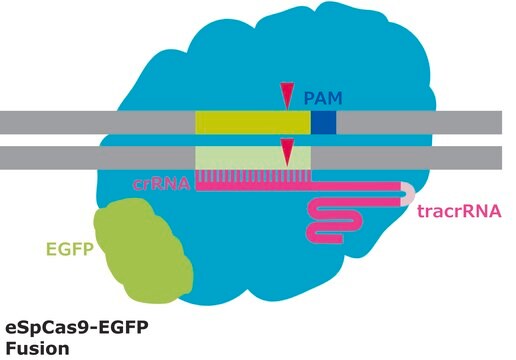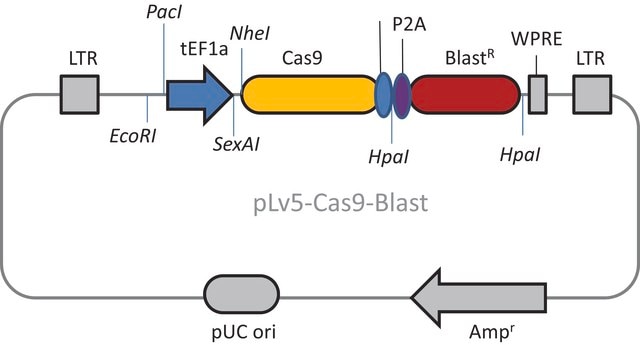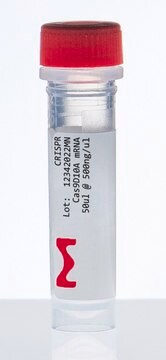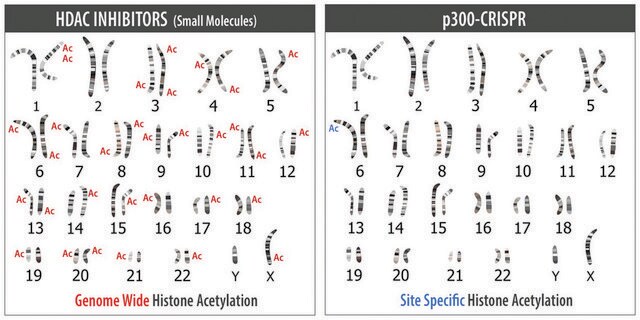FNCAS9PROT
FnCas9 Protein
from Francisella novicida, recombinant, expressed in E. coli, 1X NLS
Synonym(s):
Francisella Novicida Cas9
About This Item
Recommended Products
recombinant
expressed in E. coli
Quality Level
Assay
≥95% (SDS-PAGE)
form
lyophilized powder
packaging
pkg of 1 kit (4 components)
application(s)
CRISPR
shipped in
wet ice
storage temp.
−20°C
Related Categories
General description
Application
Features and Benefits
- Suitable for plasmid or large genomic DNA fragment cloning
- Results in 4-bp 5′ overhangs.
- Cuts purified plasmid DNA more efficiently than SpCas9
Packaging
pkg of 250 μg (≥ 1500 pmol)
Components
- one vial of FnCas9 recombinant protein
- one vial containing 1 mL of 1× Dilution buffer
- one vial containing 1 mL of Nuclease free water with glycerol
- one vial containing 1 mL of 10× Digestion Buffer
Principle
Reconstitution
Other Notes
Enter the 20bp genomic DNA target sequence (5′ to 3′) plus the adjacent 3′ PAM site. Under special instructions, indicate "FnCas9 crRNA"
Click here to order FnCas9 tracrRNA
Check out our other MISSION® Cas9 Proteins at SigmaAldrich.com/CRISPRproteins
Legal Information
Kit Components Only
- FnCas9-NLS from Francisella novicida, expressed in Escherichia coli
- Dilution buffer for Cas9 proteins
- Reconstitution solution for Cas9 proteins
- Digestion buffer 10× for FnCas9
Signal Word
Warning
Hazard Statements
Precautionary Statements
Hazard Classifications
Eye Irrit. 2
Storage Class Code
11 - Combustible Solids
Certificates of Analysis (COA)
Search for Certificates of Analysis (COA) by entering the products Lot/Batch Number. Lot and Batch Numbers can be found on a product’s label following the words ‘Lot’ or ‘Batch’.
Already Own This Product?
Find documentation for the products that you have recently purchased in the Document Library.
Customers Also Viewed
Protocols
Combine guaranteed sgRNAs with our comprehensive range of CRISPR products and tools, including Cas9 and delivery reagents, for efficient genome modification with higher specificity.
Related Content
Watch Cas9-GFP proteins work inside your cells and deliver the powerful nuclease editing you have come to trust and expect. MISSION™ SpCas9-GFP and eSpCas9-GFP proteins are multi-functional enzymes with high on-target cleavage efficiency fused to Enhanced Green Fluorescent Protein (EGFP) for real-time observation of Cas9 delivery and clearance from cells.
Our team of scientists has experience in all areas of research including Life Science, Material Science, Chemical Synthesis, Chromatography, Analytical and many others.
Contact Technical Service

